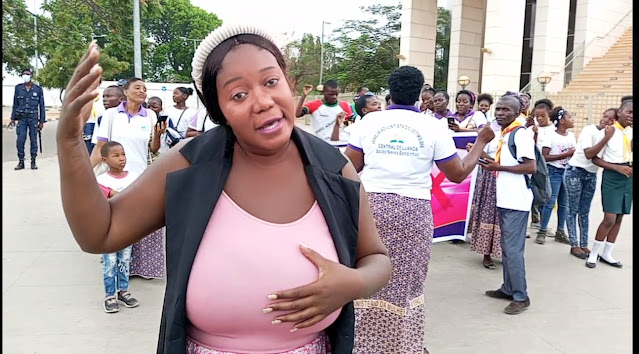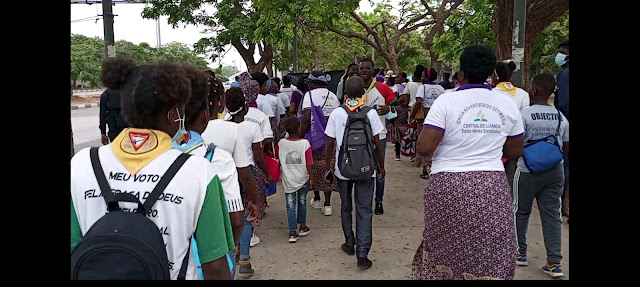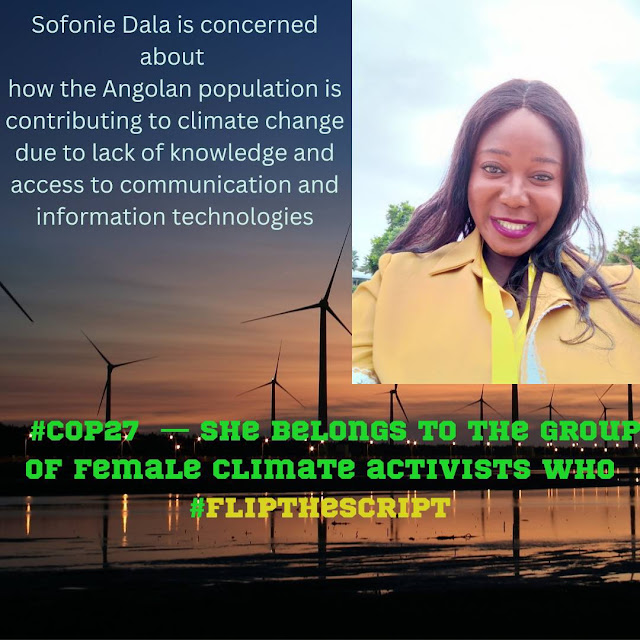How climate change can increase your breast cancer risk | The alcohol - Breast Cancer connection Africa
Greater toxicity. It’s a big deal because 90% of breast cancer cases are likely linked to factors including environmental exposures to toxic chemicals and radiation. Only around 10% of breast cancer cases can be attributed to genetics.
Climate change can increase your breast cancer risk
Top 4 ways climate change may increase your risk of breast cancer:
- Hotter temps make it harder for our bodies to cleanse by breaking down and getting rid of toxic chemicals.
- Hotter temps make cancer chemicals like pesticides more harmful to our bodies.
- Severe weather events can pollute the water we drink.
- Hotter temps mean more volatile toxic chemical pollution in the air we breathe.
What comes with a hotter world? Greater toxicity. It’s a big deal because 90% of breast cancer cases are likely linked to factors including environmental exposures to toxic chemicals and radiation. Only around 10% of breast cancer cases can be attributed to genetics.
While you’re letting that sink in, let’s get to the bottom of what ‘greater toxicity’ means. It comes in multiple forms. First off, some chemicals of concern for breast cancer, like pesticides, are literally more harmful to our health at higher temperatures.
Breast cancer risks rise with greater toxicity from harmful chemicals.
And you’ve probably heard about severe weather events like storms, hurricanes, and floods. Well, increased storm, flooding, and water runoff, from a rise in the number and severity of weather events, are projected to lead to chemical contamination of water sources.Think, cancer-causing pesticides from lawns, gardens, and crops, washing into your streams, watersheds, and water reservoirs.
In those flooding events, hazardous chemicals are released such as formaldehyde, a carcinogen, from manufactured wood products and plasticizing chemicals from flooring and other furniture.
Granted, climate change is projected to shift regional precipitation patterns. Some areas are more likely to see more precipitation, like rain and storms, while others will see less. Unfortunately, less precipitation carries other toxic risks.
Areas that see less rainfall may experience a higher level of airborne (volatile) persistent organic pollutants (POPs), like some pesticides linked to breast cancer, in the atmosphere. POPs are chemicals that do not break down in the environment over time. Instead, they stick around and can cause illness.
Less precipitation is also expected to increase air pollution in urban areas, which means greater exposure to harmful chemicals linked to breast cancer.
And while hotter temperatures intensify the toxicity of chemicals like air pollutants and pesticides, they also weaken our bodies’ ability to cope. Hotter temperatures make it harder for our bodies to break down and get rid of toxic chemicals (i.e. detoxify) by weakening our natural metabolism and excretion processes.
According to a study on global climate change published in the journal of Environmental Toxicology and Chemistry:
Environmental variables altered by global climate chance (GCC), like temperature, precipitation, salinity, and pH, can influence the toxicokinetics of chemical absorption, distribution, metabolism, and excretion as well as toxicodynamic interactions between chemicals and target molecules. In addition, GCC challenges processes critical for coping with the external environment (water balance, thermoregulation, nutrition, and the immune, endocrine, and neurological systems), leaving organisms sensitive to even slight perturbations by chemicals when pushed to the limits of their physiological tolerance range.
In other words, rising temperatures make us more sensitive to chemical stressors like toxic chemicals. Our bodies’ natural systems for keeping us healthy are less able to cope, which makes us more susceptible to breast cancer and other diseases.
All in all, climate change means an increased risk of breast cancer for all of us, especially people in places that are hard hit by extreme weather events facing chemical contamination and air pollution. It’s easy to hold climate change at arm’s reach, as a distant environmental problem, causing flooding in places far from home and the extinction of rare species. But it’s more than that—it’s a global health problem that’s about to get worse.
Already breast cancer affects 1 in 8 women. Those are our sisters, mothers, daughters, friends, families, and communities. It’s time that the world stepped up and addressed climate change to prevent breast cancer before it starts.
THE ALCOHOL-BREAST CANCER CONNECTION AFRICA
REMEMBERING HOW WE OBSERVED BREAST CANCER MONTH LAST YEAR
It was exactly 2 years ago that we interviewed Josefa who was taking care of her mother who was fighting breast cancer with all her strength. Unfortunately, Josefa lost her mother in October 2022. The mother left a void and a deep pain in the heart of her family, neighbors and friends.
Good afternoon!
How are you?
I'm fine thanks!
Please introduce yourself.
I am Josefa Pedro.
OK Josefa, thank you so much for being with us!
Could you tell us how breast cancer has affected your life and the life of your family?
It was a very difficult thing for us. My mother has always been a very dynamic woman, having to discover this disease at 41 years of age, as she was young, this was very difficult.
So I had to walk with her, follow the whole process, and it's something very exhausting, not only for the person who has the disease but for the people close to her as well.
How long did your mother carry this disease?
We had intensive treatment for a year. we did the consultations, then the medical operation was performed, and she spent 3 to 6 months undergoing chemotherapy.
When was breast cancer discovered in your mother?
This disease was discovered in 2019, between June - July. As soon as we discovered the cancer, we immediately went to the oncology center at the Maria Pia hospital, where we started the treatment.
How is her condition now?
She is currently doing well, she continues to undergo the treatment but on the basis of pills. Every 6 months she has a check up to ensure that no other abnormalities have developed in her body.
What is the appeal you would give to other girls facing this disease, and for those who are shy to ask for help?
First of all, women must self-examine themselves.
For those like me who already have a case of this in their family, from 25 years of age onwards, they should start having a mammogram, to find out if there is an indication. When the cancer is in the early stage it is still possible to treat, but unfortunately some women only discover it in the advanced stage when it is too late to do anything.
Was your mother's tumor removed?
Yes, thank God!
Click here to learn more about Josefa:
https://sofoniedala.blogspot.com/2021/10/breast-cancer-slowdown-campaign-with.html
Campaign report

The Angolan Cancer Control Institute adopted a strategy to carry out screening for the disease in places of large population agglomeration, which allowed the diagnosis of 958 new cases, of which 232 of breast cancer, 26 of the prostate and 159 of the uterine cervix. In relation to breast cancer, there was a decrease in the number of cases, because in previous years there were generally more than 300 cases registered.
In Angola, the approach to the importance of breast self-examination in preventing cancer of this organ is still quite deficient, many patients seek the services of the local Oncology Center when the disease is at an advanced stage, which has been making it difficult to treat the disease and they end up dying with the cancer, leaving the families destitute."
Unfortunately, in the country there are not so many hospitals and highly qualified doctors to detect the disease in the first aid, as a result they end up making misdiagnoses, which worsens the patient's health even more.
However, this campaign was developed from the perspective of raising awareness and sensitize Angolan women to the importance of early diagnosis in breast cancer prevention".
Our online Breast Cancer Slowdown program is made up of only 4 Hybrid Docuseries based on real stories and was specially developed for this weekend.
We are sorry that some of you were not able to attend the first part of this campaign. We think that you might be interested in and benefit from watching the entire campaign.
In case you missed out, you can still watch the campaign recordings by clicking to this link: https://sofoniedala.blogspot.com/2021/10/breast-cancer-slowdown-campaign-with.html
Behavioural choices and related interventions that reduce the risk of breast cancer include:
- prolonged breastfeeding;
- regular physical activity;
- weight control;
- avoidance of harmful use of alcohol;
- avoidance of exposure to tobacco smoke;
- avoidance of prolonged use of hormones; and
- avoidance of excessive radiation exposure.
Unfortunately, even if all of the potentially modifiable risk factors could be controlled, this would only reduce the risk of developing breast cancer by at most 30%.
Female gender is the strongest breast cancer risk factor. Approximately 0.5-1% of breast cancers occur in men.
Treatment
Breast cancer treatment can be highly effective, achieving survival probabilities of 90% or higher, particularly when the disease is identified early. Treatment generally consists of surgery and radiation therapy for control of the disease in the breast, lymph nodes and surrounding areas (locoregional control) and systemic therapy (anti-cancer medicines given by mouth or intravenously) to treat and/or reduce the risk of the cancer spreading (metastasis). Anti-cancer medicines include endocrine (hormone) therapy, chemotherapy and in some cases targeted biologic therapy (antibodies).
Donate
There are a number of ways to support those affected by breast cancer. Whether helping the community as a whole or donating in honor of or in memory of a loved one, each donation helps sustain our mission to educate the community and fight to end breast cancer.
Your gift means we can bring hope to cancer patients. Together we are fighting cancer smarter, better and harder than we ever have before. Thank you for your support.
SAYING GOODBYE TO PINK OCTOBER - AWARENESS MARCH AGAINST BREAST CANCER. BY SOFONIE DALA, ANGOLA
Part 1
Our motto is: "Lower cancer and never cancer"
A long march, praises and fervent prayers marked the last Sunday of October.
This is how we are ending the Pink October - fighting breast cancer together with the Seventh-day Adventist Church's Women's Ministry.
On this day the Angolan population woke up surprised by our movement on the road.
We went to the road with a long march where dozens of women and girls including some male representatives took part in this initiative.
Every year thousands of women become fatal victims of breast cancer. We are losing our families, friends, sisters and neighbors due to this malignant tumor.
Especially the poorer women who only discover the disease in the final stage due to the lack of financial resources to consult a good hospital with good specialists who can diagnose the disease on time.
We mobilized hundreds or even thousands of people who came across us on the street.
Breast cancer is a very serious disease that needs to be fought. We encourage women to regularly consult a doctor for the early diagnosis of cancer. Reasons why we are here in the fight against breast cancer.
With you was Sofonie Dala. Greetings everyone!
Interview with the district director of the Ministry of Women.
Good morning sister!
Please introduce yourself and tell us a little about this program.
Good morning my dear sister!
My name is Ana Victorino Paulino, director of the Women's Ministry of the popular neighborhood district!
As you can see here all women in uniform, we organized this march to raise awareness about breast cancer and uterine cancer. We marched from the 1st of May region to the Santa Ana de Luanda wake.
One of the main reasons for this march is to be able to rescue many women who are being affected and oppressed by breast cancer and cannot get rid of them alone.
When they see the population or a group of women stunned, they will feel motivated to fight.
We have prepared special messages for many women to wake up and do the consultation and control of breast or uterine cancer. We are in the church not only to worship God but also to be able to rescue souls, doing social work and also working with the state.
This is the reason for the participation of these women to be able to manifest and fight cancer.
Our motto is: "Lower cancer and never cancer".
We know that with divine power we will overcome cancer. The local police support us and accompany us to the point of arrival.
We managed to reach a good part of the population of Luanda and we saw the satisfaction on the faces of many who appreciated us along the way.
So thank you very much, we have the feeling of mission accomplished.
And which church organized it?
This was a particular initiative of one of the districts of the Seventh-day Adventist Church (District Popular Neighborhood).
October 30th: Never cancer, and that's how we ended the month.
OK thank you.
Thank you, kisses.
In Africa, breast cancer kills more women over age 40 than HIV/AIDS & Malaria Combined. Unfortunately, there is no basic awareness about breast cancer in Africa.
MINISTRY OF WOMAM IS MAKING STRIDES AGAINST BREAST CANCER - PART 2. BY SOFONIE DALA, ANGOLA
The full long march
Churches are not oblivious to the critical situations that occur in the country
Part 2
The month of October couldn’t end without Lifting up with Luanda city turning pink in honor of Breast Cancer Awareness Month.
The Seventh-day Adventist Church is making sure to spread breast cancer awareness in the wake of losing women to the deadly disease.
Interview with women who have already lost someone to breast cancer
Good afternoon mam!
Good afternoon.
What are you doing here?
We are running a religious campaign that encourages the fight against breast cancer.
Do you know someone who has been a victim of breast cancer?
Yes, I am very sad because this very dangerous disease that kills urgently, by chance also killed my neighbor. I recently lost a friend who suffered from this disease, she struggled a lot with it, but unfortunately last week she passed away.
She left me an emptiness and a very deep pain.
What a pity, what a pity!
This situation is very sad, we must reinforce the fight against breast cancer, because it is a disease that is killing many women.
Another additional interview
Good morning mam!
Good morning sister!
How did the march go?
Thank God it went very well.
Did you like the experience?
I really enjoyed this experience.
Do you know someone who has been a victim of breast cancer?
Not very well.
But did you march to motivate other women?
Yes, I marched to give strength to other women, and also to appeal for other women to be present next time, and also to invest in the walks to draw the attention of other sisters so that they join us.




.jpg)



.jpg)




.png)


























































Comentários
Enviar um comentário